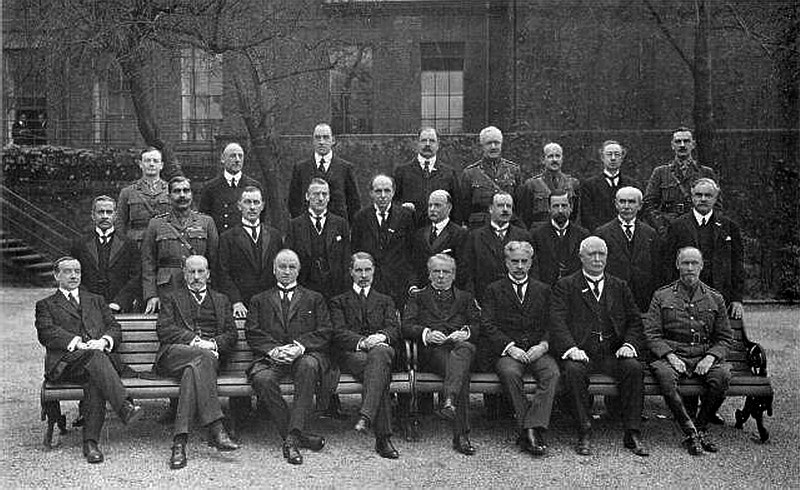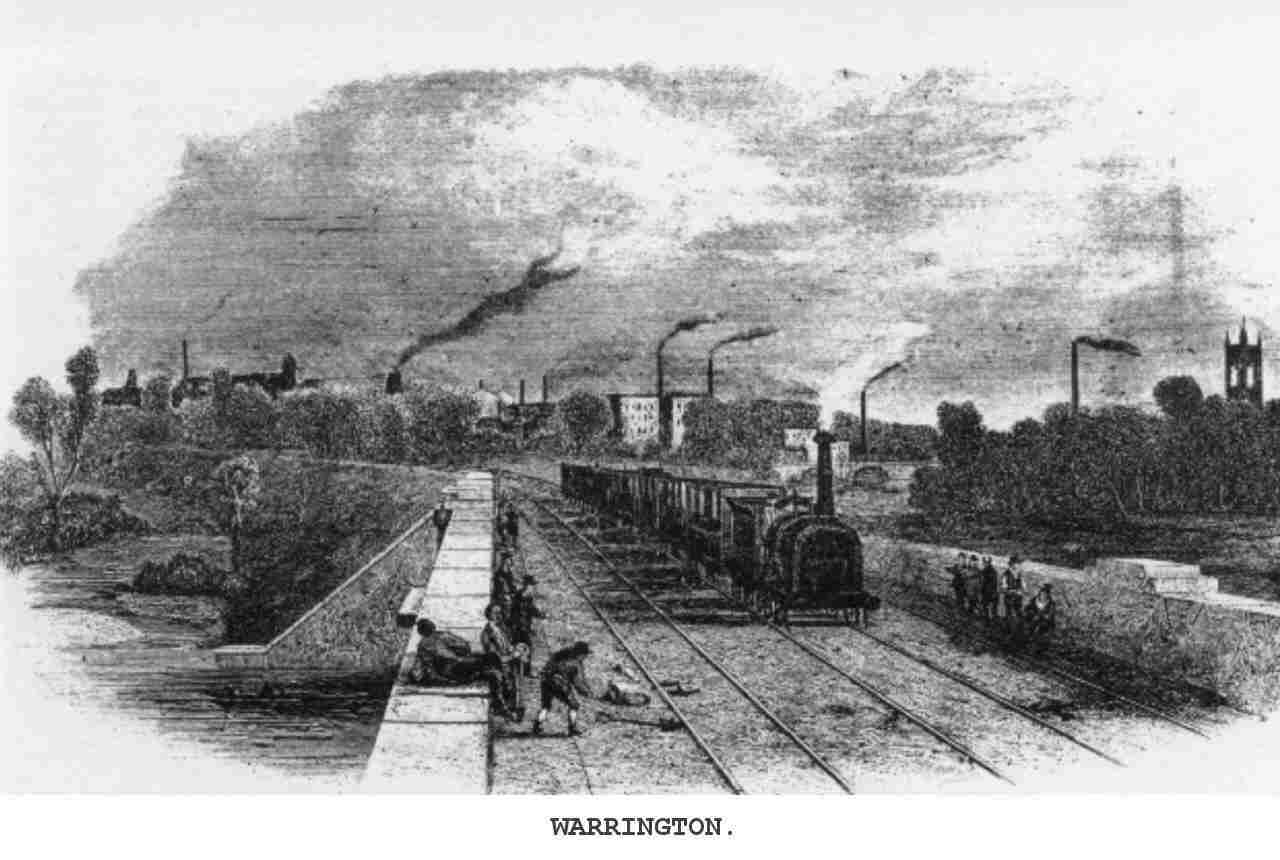|
Roger Grey, 10th Earl Of Stamford
Roger Grey, 10th Earl of Stamford (27 October 1896 – 18 August 1976) was an English peer. He took his seat in the House of Lords on 19 March 1919, but he rarely sat in the House. Life and activities Born in London on 27 October 1896, he was known from birth by the courtesy title of Lord Grey of Groby. The only son of William Grey, 9th Earl of Stamford, and his wife, née (Elizabeth Louisa) Penelope Theobald (1865–1959), he was the brother of Lady Jane Grey (1899–1991), who became on marriage Lady Jane Turnbull. Having inherited the earldom of Stamford at the age of thirteen, he took over the management of the Dunham Massey estate in 1917, on attaining his majority. In keeping with his father's outlook, he ran the estate on paternalistic lines, charging his agricultural tenants low rents in the belief that farming was less a business than a way of life. Educated at Eton College and at New College, Oxford, from 1919, he was a 2nd Lieutenant in the Territorial Force Re ... [...More Info...] [...Related Items...] OR: [Wikipedia] [Google] [Baidu] |
Earl Of Stamford
Earl of Stamford was a title in the Peerage of England. It was created in 1628 for Henry Grey, 2nd Baron Grey of Groby. This Grey family descended through Lord John Grey, of Pirgo, Essex, younger son of Thomas Grey, 2nd Marquess of Dorset, and younger brother of Henry Grey, 1st Duke of Suffolk (father of Lady Jane Grey); Suffolk was executed for treason in 1554 forfeiting his titles (see the Duke of Suffolk for earlier history of the family). History Lord John Grey's son Sir Henry Grey was in 1603 raised to the Peerage of England as Baron Grey of Groby, ''in the County of Leicester''. He was succeeded by his grandson, the second Baron, who was created Earl of Stamford in the Peerage of England in 1628. Lord Stamford later fought as a Parliamentarian in the Civil War. His eldest son Thomas Grey, Lord Grey of Groby, was a leading Parliamentarian in the Civil War. Stamford was one of the judges at the trial of Charles I and one of the regicides who signed the K ... [...More Info...] [...Related Items...] OR: [Wikipedia] [Google] [Baidu] |
Lloyd George Ministry
Liberal David Lloyd George formed a coalition government in the United Kingdom in December 1916, and was appointed Prime Minister of the United Kingdom by King George V. It replaced the earlier wartime coalition under H. H. Asquith, which had been held responsible for losses during the Great War. Those Liberals who continued to support Asquith served as the Official Opposition. The government continued in power after the end of the war in 1918, though Lloyd George was increasingly reliant on the Conservatives for support. After several scandals including allegations of the sale of honours, the Conservatives withdrew their support after a meeting at the Carlton Club in 1922, and Bonar Law formed a government. Cabinets War Cabinet, December 1916 – January 1919 * George Curzon, 1st Earl Curzon of Kedleston – Lord President of the Council and Leader of the House of Lords * Bonar Law – Chancellor of the Exchequer and Leader of the House of Commons * Arthur Henderson – Mi ... [...More Info...] [...Related Items...] OR: [Wikipedia] [Google] [Baidu] |
Warrington
Warrington () is an industrial town in the Borough of Warrington, borough of the same name in Cheshire, England. The town sits on the banks of the River Mersey and was Historic counties of England, historically part of Lancashire. It is east of Liverpool and the same distance west of Manchester. The population in 2021 was recorded as 174,970 for the built-up area and 210,900 for the wider borough, the latter being more than double that of 1968 when it became a New towns in the United Kingdom, new town. Warrington is the largest town in the ceremonial county of Cheshire. Warrington was founded by the Roman Britain, Romans at an important crossing place on the River Mersey. A new settlement was established by the Saxons, Saxon Wærings. By the Middle Ages, Warrington had emerged as a market town at the lowest bridging point of the river. A local tradition of textile and tool production dates from this time. The expansion and urbanisation of Warrington coincided with the Industr ... [...More Info...] [...Related Items...] OR: [Wikipedia] [Google] [Baidu] |
Huguenot
The Huguenots ( , ; ) are a Religious denomination, religious group of French people, French Protestants who held to the Reformed (Calvinist) tradition of Protestantism. The term, which may be derived from the name of a Swiss political leader, the Genevan burgomaster Besançon Hugues, was in common use by the mid-16th century. ''Huguenot'' was frequently used in reference to those of the Reformed Church of France from the time of the Protestant Reformation. By contrast, the Protestant populations of eastern France, in Alsace, Moselle (department), Moselle, and Montbéliard, were mainly Lutheranism, Lutherans. In his ''Encyclopedia of Protestantism'', Hans Hillerbrand wrote that on the eve of the St. Bartholomew's Day massacre in 1572, the Huguenot community made up as much as 10% of the French population. By 1600, it had declined to 7–8%, and was reduced further late in the century after the return of persecution under Louis XIV, who instituted the ''dragonnades'' to forcibly ... [...More Info...] [...Related Items...] OR: [Wikipedia] [Google] [Baidu] |
Booth Baronets
There have been three baronetcies created for persons with the surname Booth, one in the Baronetage of England and two in the Baronetage of the United Kingdom. The 1916 creation remains extant as of , the 1835 creation became extinct in 1896 and the 1611 baronetcy has been dormant since 1797. * Booth baronets of Dunham Massey (1611). The senior line of this creation was elevated to the peerage A peerage is a legal system historically comprising various hereditary titles (and sometimes Life peer, non-hereditary titles) in a number of countries, and composed of assorted Imperial, royal and noble ranks, noble ranks. Peerages include: A ... as Baron Delamer and Earl of Warrington. * Booth baronets of Portland Place (1835) * Booth baronets of Allerton Beeches (1916) {{DEFAULTSORT:Booth Set index articles on titles of nobility ... [...More Info...] [...Related Items...] OR: [Wikipedia] [Google] [Baidu] |
Baron Grey Of Codnor
The noble title, title of Baron Grey of Codnor is a title in the peerage of England. This List of baronies in the Peerage of England, barony was called out of abeyance in 1989, after 493 years, in favour of the Cornwall-Legh family of High Legh, East Hall, High Legh, Cheshire. The Lords Grey of Codnor are Lineal descendant, senior lineal representatives of the Nobility, noble house of Grey, and as hereditary peers are eligible for List of excepted hereditary peers, election to a seat in the House of Lords. They descend from the eldest son of Henry de Grey, whose younger son Sir John de Grey was father of the first Baron Grey de Wilton. The first Baron Grey of Ruthyn was son of a younger son of the 2nd Baron Grey de Wilton, and Sir John Grey of Groby, descended from a younger son of the 3rd Baron Grey de Ruthyn, was the ancestor of the last known male-line branch of the ancient Greys, who held and lost the titles of Marquess of Dorset and Duke of Suffolk before being created Baron ... [...More Info...] [...Related Items...] OR: [Wikipedia] [Google] [Baidu] |
Cheshire
Cheshire ( ) is a Ceremonial counties of England, ceremonial county in North West England. It is bordered by Merseyside to the north-west, Greater Manchester to the north-east, Derbyshire to the east, Staffordshire to the south-east, and Shropshire to the south; to the west it is bordered by the Welsh counties of Flintshire and Wrexham County Borough, Wrexham, and has a short coastline on the Dee Estuary. The largest settlement is Warrington. The county has an area of and had a population of 1,095,500 at the 2021 United Kingdom census, 2021 census. The areas around the River Mersey in the north of the county are the most densely populated, with Warrington, Runcorn, Widnes, and Ellesmere Port located on the river. The city of Chester lies in the west of the county, Crewe in the south, and Macclesfield in the east. For Local government in England, local government purposes Cheshire comprises four Unitary authorities of England, unitary authority areas: Cheshire East, Cheshire We ... [...More Info...] [...Related Items...] OR: [Wikipedia] [Google] [Baidu] |
George VI
George VI (Albert Frederick Arthur George; 14 December 1895 – 6 February 1952) was King of the United Kingdom and the Dominions of the British Commonwealth from 11 December 1936 until Death and state funeral of George VI, his death in 1952. He was also the last Emperor of India from 1936 until the British Raj was dissolved in August 1947, and the first head of the Commonwealth following the London Declaration of 1949. The future George VI was born during the reign of his great-grandmother Queen Victoria; he was named Albert at birth after his great-grandfather Prince Albert of Saxe-Coburg and Gotha and was known as "Bertie" to his family and close friends. His father ascended the throne as George V in 1910. As the second son of the king, Albert was not expected to inherit the throne. He spent his early life in the shadow of his elder brother, Edward VIII, Edward, the heir apparent. Albert attended naval college as a teenager and served in the Royal Navy and Royal Air Force ... [...More Info...] [...Related Items...] OR: [Wikipedia] [Google] [Baidu] |
Altrincham
Altrincham ( , locally ) is a market town in Trafford, Greater Manchester, England, south of the River Mersey. It is southwest of Manchester, southwest of Sale, Greater Manchester, Sale and east of Warrington. At the 2021 United Kingdom census, 2021 census, the built up area had a population of 49,680. It lies within the Historic counties of England, historic county boundaries of Cheshire, and became part of Greater Manchester in 1974. Altrincham developed as a market town following the right to hold a market being granted in 1290; the market continues today. Further socioeconomic development came with the extension of the Bridgewater Canal to Altrincham in 1765 and the arrival of the railway in 1849, stimulating industrial activity in the town. Outlying villages were absorbed by Altrincham's subsequent growth, along with the grounds of Dunham Massey Hall, formerly the home of the Earl of Stamford, and now a tourist attraction with three Grade I Listed Buildings and a deer ... [...More Info...] [...Related Items...] OR: [Wikipedia] [Google] [Baidu] |
Secretary Of State For India
His (or Her) Majesty's Principal Secretary of State for India, known for short as the India secretary or the Indian secretary, was the British Cabinet minister and the political head of the India Office responsible for the governance of the British Indian Empire, including Aden, Burma and the Persian Gulf Residency. The post was created in 1858 when the East India Company's rule in Bengal ended and India, except for the Princely States, was brought under the direct administration of the government in Whitehall in London, beginning the official colonial period under the British Empire. In 1937, the India Office was reorganised which separated Burma and Aden under a new Burma Office, but the same secretary of state headed both departments and a new title was established as His Majesty's Principal Secretary of State for India and Burma. The India Office and its secretary of state were abolished in August 1947, when the United Kingdom granted independence in the Indian ... [...More Info...] [...Related Items...] OR: [Wikipedia] [Google] [Baidu] |





